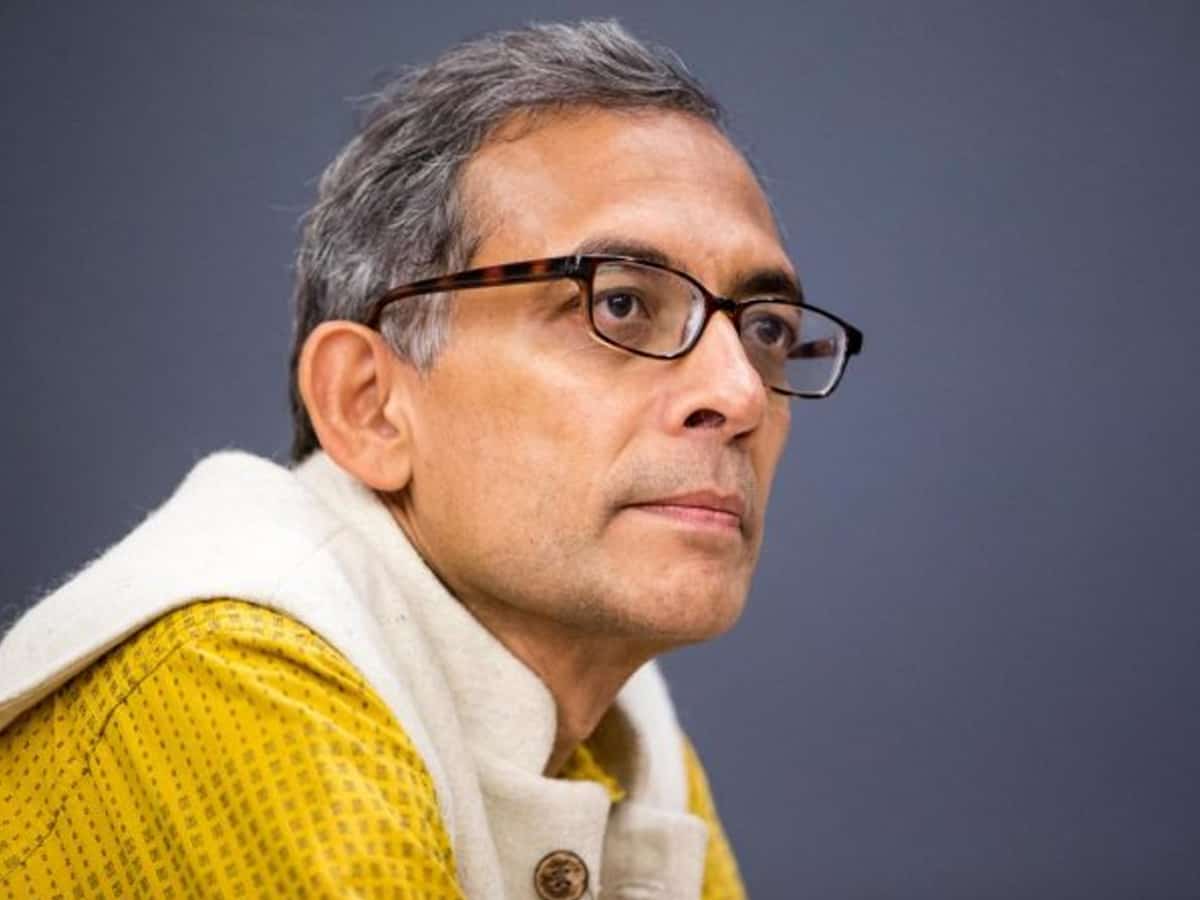
New Delhi: Pre-electoral giveaways are not the best ways to help the poor and this needs to be disciplined, says Nobel Laureate Abhijit Banerjee.
Participating in a conversation on ‘Good Economics, Bad Economics’, steered by economist and author Shrayana Bhattacharya on Saturday, Banerjee delved upon several pertinent issues including developmental economics, practical models of economy, cost of living crisis, social protection, distributive effect of the prices and livelihood stimulus.
He also shared insights about the Indian economy and the current social issues India is grappling with including inflation, unemployment, women’s economic freedom as well as trends like distributing freebies by political parties and its ripple effect on poverty.
Expressing concern over distribution of freebies around elections, Banerjee said this needs to be disciplined.
“And now it’s a hard game to get out of. The traditional and inegalitarian way was loan write-offs because the biggest borrowers are not the poorest. That was the easy way…”
Seeking to offer a solution, he said, “Taxing the rich is a good way. Pre-electoral giveaways are not the best ways to help the poor. We have a ballooning inequality and there is a compelling argument to tax the rich, and funds can go to the central government, and distributed further down.”
He went on to add: “A dedicated fund is the way of reducing this equality and redistribution, if we have the political will.”
Speaking about the explosion of equality in India, Banerjee said, “Real wages are falling, demand for small cars is falling, the sales of the ‘luxury cars’ section is expanding. The energy prices are exploding in the wake of the Ukraine-Russia crisis. The global primary goods inflation is going to impact the poor. We are in an inequality- increasing moment.”
When asked about the job crisis in India, he said the government’s well-intentioned Make in India initiative is aimed at moving the robust supply chains.
However, China continues to pose a challenge. “We may love to hate China, but it has an efficient supply chain that is very difficult to shift in the near future. It will be hard to move China from manufacturing.”
Banerjee also shed light on a striking reason for unemployment. According to him, the compelling, extraordinary ‘dream government job’ has posed a serious problem.
“The idea of a dream government job is so compelling for a large population of Indians that it has led to wastage of our talent. The major objective of our education system is to get government jobs. However, about 98 per cent of the aspirants are not successful in getting these jobs, creating a large pool of unemployed youth,” he argued.
The discussion was held as part of the literary conversation series for Delhi booklovers – A Suitable Conversation – hosted by A Suitable Agency and Delhi’s picturesque heritage park Sunder Nursery.
Highlighting the purpose of these conversations, Hemali Sodhi, founder of A Suitable Agency, said: “At A Suitable Agency we love everything about books – and this includes the fascinating conversations with authors, the excitement of hearing a favourite writer discuss their work, and the sheer joy of meeting other readers and book lovers.”
The evening culminated with an interactive session with the audience.
Launched in 2020, the series opened with a conversation around Manu Pillai’s “False Allies”, focusing on India’s maharajas in the age of Ravi Varma. Other authors to feature in subsequent conversations included Snigdha Poonam, William Dalrymple and Ramachandra Guha.



